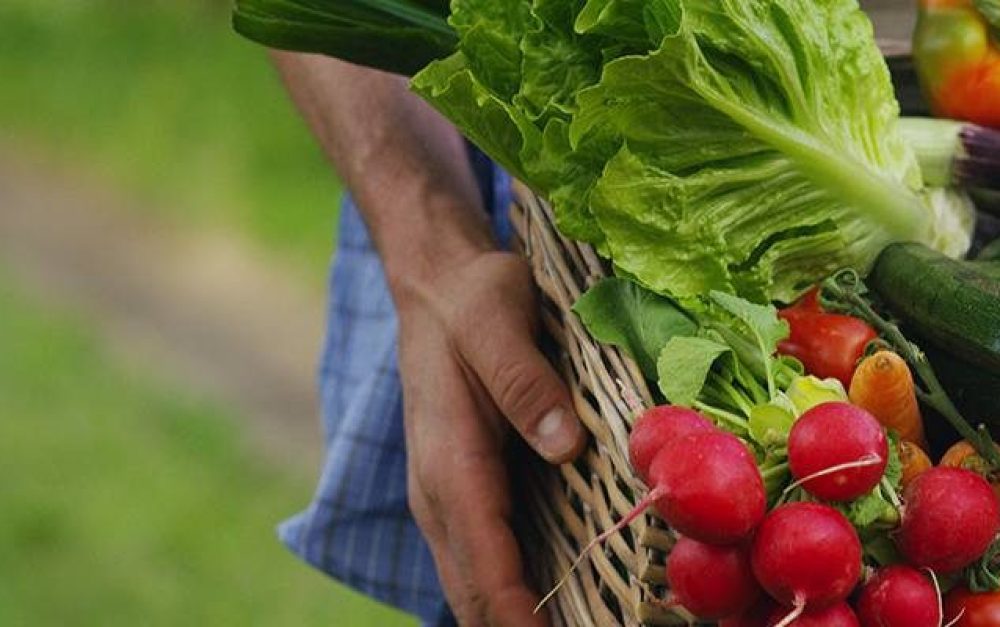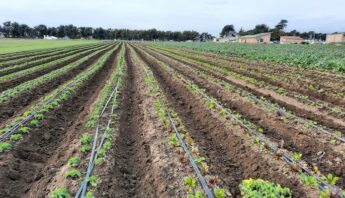Annual Report Again Gives California Elected Officials Credit For Incremental Gains, But Sees That Food And Farming Remain An “Indefensibly Low Priority” For Policy Makers
For Immediate Release: January 16th, 2018
Sacramento, CA (January 16, 2018) – Two reports released today by Roots of Change, California Food and Farming Network and the California Food Policy Council (CAFPC) reveal the 2017 food and farm policy votes of California’s 120 elected state legislators. The 2017 California Food and Agriculture Legislation Tracker and the Legislators Scorecard illustrate that despite making modest progress on food and agriculture issues, the Legislature continues to miss critical opportunities to pass the transformative — and often controversial — policies needed to address the public health challenges that are undermining California’s future.
Created by 39 nonprofits advocating for change, these reports represent growing statewide consensus from constituencies representing the diversity of California: rural and urban, conservative and progressive, affluent and low-income. In order for the state to achieve significant policy reform there must exist a strong base of Californians from north to south and east to west, who are determined to push their legislators toward positive change.
Of the twenty priority bills tracked this year by the coalition, Governor Jerry Brown signed twelve of the thirteen that reached his desk. Thirty-two assemblymembers and twenty-three senators voted to support coalition priorities 100% of the time, which represents 46% of the Legislature.
“We remain hopeful based on the steady increase in legislators voting with our coalition each year. But we also remain perplexed by the Legislature’s lack of focus on the many fundamental food and farm challenges that impact public health. A good example would be the unwillingness to consider a tax on sugary beverages to fund healthy food access and other prevention strategies to combat diabetes,” said Michael R. Dimock, president of Roots of Change.
Paul Towers, coordinator of the California Food and Farming Network offered, “Large corporations and trade groups continue to provide undue and unfair influence on food and farming legislation. Despite these challenges, some legislators seem emboldened to stand up to powerful interests and advocate for the most vulnerable.”
Two legislators were acknowledged for their leadership over the past year: Senator Mike McGuire led efforts to provide school meals for low-income children (SB 138), and provided critical support for fire-affected farmworkers and farmers, while Assemblymember David Chiu protected undocumented workers, including farmworkers, at job sites (AB 450) and supported better labeling to reduce food waste (AB 954).
Peter Ruddock, coordinator of the California Food Policy Council, notes that while legislators did pass bills this year setting guidelines for Sell By Dates on food and requiring that ingredients in cleaning products be listed on packaging, lawmakers remain wary of requiring that manufacturers give consumers all of the information that they require to make truly informed choices.
With these reports, the coalition completes its fifth successful year of collaboration on statewide food policy, and celebrates the addition of California Food Farming Network with its forty-plus partner organizations. The enlarged alliance now ties together the vision and goals of 27 regional councils and forty advocacy organizations seeking food system policy change. In addition to tracking votes and the Governor’s actions on key bills, the Legislation Tracker contains an analysis of the legislative session and special section entitled the California Food and Farming Index that presents key facts that set the context and underline the critical need for food system change.
Media contacts:
Paul Towers, California Food & Farming Network, 916-216-1082
Michael Dimock, Roots of Change, 707-953-2721
Peter Ruddock, California Food Policy Council, 650-283-0978
###
California Food & Farming Network (CFFN) is made up of over forty organizations striving to improve the food and farming system, from across the state. Collectively, CFFN is dedicated to advancing state policies that are rooted in communities, promote fairness and racial equity, secure financial prosperity and advance environmental sustainability. We share information, provide expertise, build alignment and advance policies through the multi-sector network.
The California Food Policy Council (CAFPC) is comprised of 27 local councils from across the state. CAFPC seeks to create common ground amongst a far-reaching spectrum of food system stakeholders, and develop and promote statewide policies and practices that reflect the core values we share: to produce healthy, safe, humane and abundant food in ways that protect our environment and ensure the prosperity of our workers, farms, and food businesses. We provide broadly supported guidance and assistance to decision makers as they develop new policies, regulations, programs, funding, technical support and research priorities affecting food and agriculture in our state. We collaborate to better and more efficiently enact policy that creates food system change in our home areas, and share better practices to improve the operation of our local councils and strengthen the interactions between them.
Roots of Change is a ‘think and do tank’ developing road maps to victory for the food movement. Since 2002, ROC has been a critical resource for food system reformers, creating large and unprecedented collaborations between agriculture and NGOs, community organizations and policy experts. From 2012 to 2017, ROC served as the backbone of the California Food Policy Council, a statewide collaboration diverse food system reform groups, that believe sound food and farm policy is key to promoting healthy and resilient communities. Today, ROC’s network includes a base of 155,000 engaged constituents and reaches a national audience via Michael R. Dimock’s writing for ROC’s newsletter the Pulse of the Food Movement. In 2018, ROC will launch a nationally distributed podcast. ROC is a program of the Public Health Institute. Facebook: Roots of Change. Twitter: @RootsofChange
###







